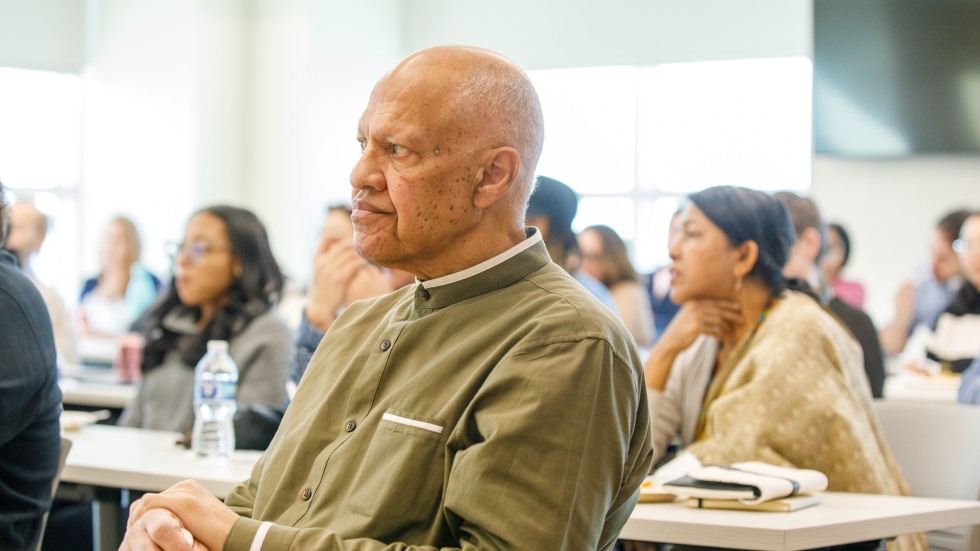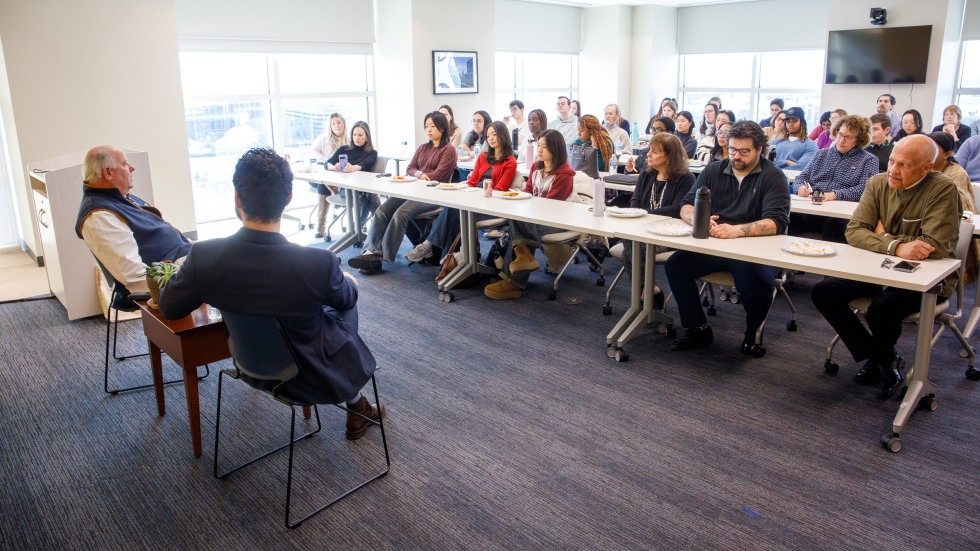On Tuesday January 28, the Brown University School of Public Health welcomed Jerome Larkin, M.D., director of the Rhode Island Department of Health (RIDOH), as the featured speaker in the latest installment of the Public Health in Practice Seminar Series.
Hosted by Craig Spencer, M.D., MPH, associate professor of the practice of health services, policy and practice at Brown, the series brings prominent public health practitioners to campus to discuss their work and experience. The conversation with Dr. Larkin focused on Rhode Island’s evolving health landscape and pressing challenges facing the state.
Before stepping into his role at RIDOH eight months ago, Dr. Larkin served as the medical director of Inpatient Infectious Disease Consultation Services and the Infectious Disease Clinic at Rhode Island Hospital, as well as co-director of the Pediatric HIV Clinic at Hasbro Children’s Hospital. He has received multiple honors, including the 2022 Steven M. Opal Award for Teaching Excellence and the 2015 Beckwith Family Award for Outstanding Teaching, both from the Warren Alpert Medical School.
Dr. Larkin explained that RIDOH is a relatively unique agency nationwide. “Just a handful of states have a single department of health that does everything,” he said. “Most are decentralized. We are sort of a one-stop shop; everything happens there.” This includes medical licensing, emergency preparedness, infectious disease outbreak management and food and water safety for the entire state. RIDOH also runs the state lab, state medical examiner, and programmatic work on chronic diseases and health equity.



